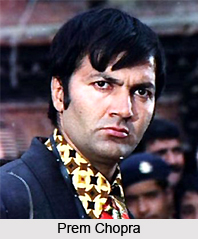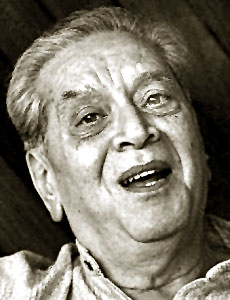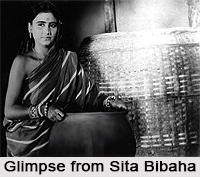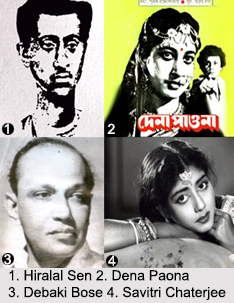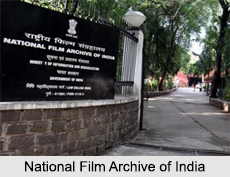 National Film Archive of India (NFAI) was established in February 1964, as a media unit of the Ministry of Information and Broadcasting in the Government of India. Its objective is to acquire, preserve and restore the rich heritage of national cinema, and the cream of international cinema. The archive has made significant progress in the preservation of films, audio and video material, documentation, research and dissemination of film culture in India. The archive functions as the main repository for Indian and foreign research workers for viewing film classics, relating to their research projects.
National Film Archive of India (NFAI) was established in February 1964, as a media unit of the Ministry of Information and Broadcasting in the Government of India. Its objective is to acquire, preserve and restore the rich heritage of national cinema, and the cream of international cinema. The archive has made significant progress in the preservation of films, audio and video material, documentation, research and dissemination of film culture in India. The archive functions as the main repository for Indian and foreign research workers for viewing film classics, relating to their research projects.
History of National Film Archive of India
The National Film Archive of India (NFAI) was founded in 1964 by the Ministry of Information and Broadcasting as a subsidiary of the Film [and Television] Institute of India. This essay narrativizes the halting bureaucratic processes through which the NFAI was set up. It traces the genesis of the idea to the Film Enquiry Committee Report, its growth through the Film Society Movement, and its actualization as part of the post independence institution building initiated by Jawaharlal Nehru. It describes the roles played by a network of individuals, including Indira Gandhi, Marie Seton, Kishan Lal Khandpur, Paramesh Krishnan Nair, and Ernest Lindgren, working from both within and outside Indian bureaucracy, who were instrumental in the NFAI`s founding and affiliation with the International Federation of Film Archives (FIAF).
Activity of National Film Archive of India
NFAI is a member of the International Federation of Film Archives, since May, 1969 which enables it to receive expert advice and material on preservation techniques, documentation, bibliographies etc. and to exchange rare films with other such archives under the archival exchange programme. The Archive maintains a distribution library of 16 mm films (Indian and Foreign) which are loaned to film societies and others for non - commercial study screenings. NFAI in collaboration with Film and Television Institute in India (FTII) conduct an Annual Film Appreciation Course. Film buffs, teachers, researchers, students and journalists join this course to learn about cinema and its vital cultural role. Developed from scratch by P. K. Nair, NFAI`s activities relating to dissemination of film culture are manifold. Its Distribution Library has about 25 active members throughout the country and it also organizes joint screening programmes on weekly, fortnightly and monthly basis in six important centers. It has over 10,000 films, over 10,000 books, over 10,000 film scripts, and over 50,000 photographs.
Another important programme is the film teaching scheme comprising long and short term Film Appreciation courses conducted in collaboration with the Film and Television Institute of India (FTII) and other educational and cultural institutions. At the International level, NFAI supplied several Indian classics for major screening programmes. The NFAI`s archive keeps a stock of films, video cassettes, DVDs, books, posters, stills, press clippings, slides, audio CDs, and disc records of Indian cinema dating back to the 1910s.
Organisations of National Film Archive of India
NFAI has its headquarters at Pune, NFAI has at present three regional offices at Bengaluru, Kolkata and Thiruvananthapuram. Regular joint screening programmes at important centres like Bengaluru, Kolkata, Mumbai, Hyderabad and Thiruvananthapuram expose audiences to the fascinating history of Indian cinema and world cinema.
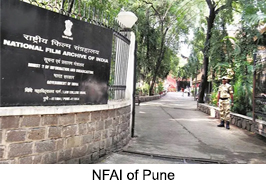 Fire Incident in National Film Archive of India
Fire Incident in National Film Archive of India
On 8 January 2003, a large fire caused a massive destruction in the vault of NFAI housed in the Prabhat Studio complex of Film and Television Institute of India in Pune, in which unduplicated irreplaceable films with a nitrate base were destroyed. Ravi Shankar Prasad the then Minister of State, Ministry of Information and Broadcasting, Government of India announced in the Rajya Sabha that 607 films in 5,097 reels were lost in the fire. Among the greatest loss were films by Dadasaheb Phalke including: Raja Harishchandra(1913), Lanka Dahan (1917), Kaliya Mardan (1919). Important films produced by Prabhat Film Company, Wadia Movietone, Bombay Talkies and New Theatres, were also gutted, namely, Bhakta Prahlada (1932), Amar Jyoti (1936), Manoos (1939), Aage Badho (1947) etc.
In March 2019, the Comptroller and Auditor General of India reported that 31,000 reels at the NFAI were reported lost or destroyed, when it audited the records between May 1, 2015 and September 30, 2017.








